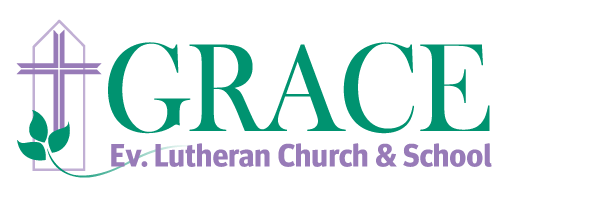Sermon – May 9, 2021 – Easter 6 – Sanctity of Life Sunday)
Printable PDF: 5-9-2021 Easter 6 Sermon
Pastor Jacobson Sanctity of Life May 9, 2021 Deuteronomy 32:39
“See now that I myself am He! There is no god besides me. I put to death and I bring to life, I have wounded and I will heal, and no one can deliver out of my hand.”
My Life Is the Lord’s
Life can seem so random. A child is conceived by a couple who doesn’t desire to have that child all the while a husband and wife can desperately try to conceive a child and are unable to do so. And on the other side of the life span an elderly adult can live on for what seems to be forever without a strong desire to live so long while the life of a younger adult or child comes to an end in what seems to be before their time. Life can seem so random, so out of our control. That’s what life can look like to our human eyes. We can all think of someone we know who fits at least one of these scenarios.
The words we have for our meditation this morning were sung by Moses in what could be described as his swan song. These words were sung by Moses on the same day Moses died. These words describe God as the one who is firmly in control even in a world that seems so out of control. And when we think of the life of Moses we see that, don’t we?
Do you remember the circumstances of Moses’ birth? At his birth Moses was sentenced to die. That was the order of the government in Egypt. The leaders of Egypt were concerned about the high birth rate of the Israelites and so they tried to control it. Their first effort was to make the Israelites work day and night. And after this effort failed they ordered the midwives of Israelite mothers to end the life of Israelite boys. And after this effort failed Pharaoh ordered all his people to throw every Hebrew boy into the Nile River. This was the chaos Moses was born into, and as Moses could reflect on many other times his life was in danger, from his confrontations with Pharaoh to his forty year journey in the wilderness, Moses knew his life and all life was subject to the Lord Almighty.
Moses sings of the Lord, “I put to death and I bring to life, I have wounded and I will heal, and no one can deliver out of my hand.” “I…I…I…I” Four “I’s” and a “my” in this sentence, all reflected the total control the Lord has over every person’s life in this world. This truth from Moses was also reinforced from our lesson from Jonah. In one day the Lord gave life to a leafy plant and the leafy plant provided shade for Jonah. Over the next night the leafy plant died. And as surely as the Lord planned the life and death of that singular plant, so also the Lord has planned the life and death of every single person.
In the beginning God gave special attention to human life. He created Adam from the dust of the earth and Eve from the rib in Adam’s side. King David in his Psalms talks of God knitting us in our mother’s womb. I have never knitted, but I have seen others knit. Knitting is tedious and time-consuming. Every stitch is made with care. God makes us different from one another, but one way God makes us the same is with a conscience. A conscience is that voice within us that tells us whether or not what we are thinking is right or wrong. A properly working conscience tells us to take care of our family. The Apostle Paul once taught, “Anyone who does not provide for their relatives, and especially for their own household, has denied the faith and is worse than an unbeliever” (1 Timothy 5:8).
How can Christians, who believe in the Bible, be worse than an unbeliever, who doesn’t believe in the Bible? Simple. God has given all people a conscience, but believers have a conscience as well as the Word of God. In regards to life, the Bible says, “You shall not murder.” From the catechism, a book of instruction, we teach abortion is murder, euthanasia or mercy-killing is murder, suicide is murder.
According to Christian Life Resources there have been 62 million abortions in the United States since 1973. According to the CDC suicide is the 10th leading cause of death in the United States. Every day, 123 Americans die by suicide. Why doesn’t the Lord put a stop to these sins? Has God perhaps lost at least some of his divine control to put to death and to bring to life? Is God calling on us as Christians to get political about right-to-life topics and to peacefully protest?
As citizens of this country we have the right to vote our conscience and the responsibility to stand up and speak for what we believe is best for our country. But let’s not forget the higher law we have as Christians, the law of love. Jesus taught, “Love your neighbor as yourself” (Matthew 22:39). The Bible teaches us, “Anyone who hates his brother is a murder” (1 John 3:15).
And in the Bible God shows us this love. God sent Jesus to be born in our chaotic, seemingly out of control world. In our Gospel lesson today, Jesus approached a woman the people had labeled as sinful and did not condemn her. Jesus didn’t condemn her because she hadn’t done anything wrong. She was in the wrong as was the man in this adultery, but Jesus did not condemn her or him because Jesus took their condemnation of himself. Jesus willingly surrendered his own life so that he could defend her life. And what Jesus did for her, Jesus has done for you and me, too. You are guilty. Whether you have had an abortion or not, whether you have assisted in a lethal injection or not, you are guilty of breaking the 5th Commandment, but Jesus has taken on your condemnation. Jesus has taken on my condemnation. Even in the chaos of sin Jesus is firmly in control. Jesus proved that control on Good Friday and Easter morning. Jesus forgives all of our sins. And if Jesus can do that, forgive us of all of our sins, Jesus can also help us raise a child we did not anticipate raising and live our lives until Jesus decides to call us home to heaven.
And so how should we as Christians respond to this grace? Shouldn’t our response start with gratitude? Gratitude for the gift of life. Sure. Gratitude for moms who gave us birth. Of course. More than that, though. Gratitude to God for not holding our sins against us. Gratitude to God for sending Jesus to right our wrongs and to restore us as holy before God. Gratitude is a good first response. Gratitude causes us to be mindful of God and his ability to do for us what we can’t do for ourselves. And yet gratitude, genuine gratitude, leads us to consider what we can do for God and for others.
What can you do to help people who need help? Can you pray for them? Will you pray for them? Can you fill a baby bottle with coins for them or cut a check for them? Will you refer a woman in need to the Alpha Pregnancy Center or another appropriate agency that helps? These are some of the simple things we can do, but maybe you are able to help in a greater way. Maybe you can be a foster parent. Maybe you can adopt. Maybe you can be an advocate for an aging adult. Maybe you can help drive someone to their appointments and make sure they take their medications. It’s important for us to help. Helping not only helps the person in need, but helps the helper, too. There comes times when roles change, when we can’t help, but instead need help. Helping others can help prepare us to receive help from others in our time of need instead of making sinful choices based on despair.
My life is the Lord’s. That was true for Moses. It was true for Moses at his birth. It was true for Moses at his death. It was true for Moses all the days of his life, and it is still true as he lives for God in heaven. “My life is the Lord’s” is true for us, too. He lived for us, and now we live for him. Amen.

